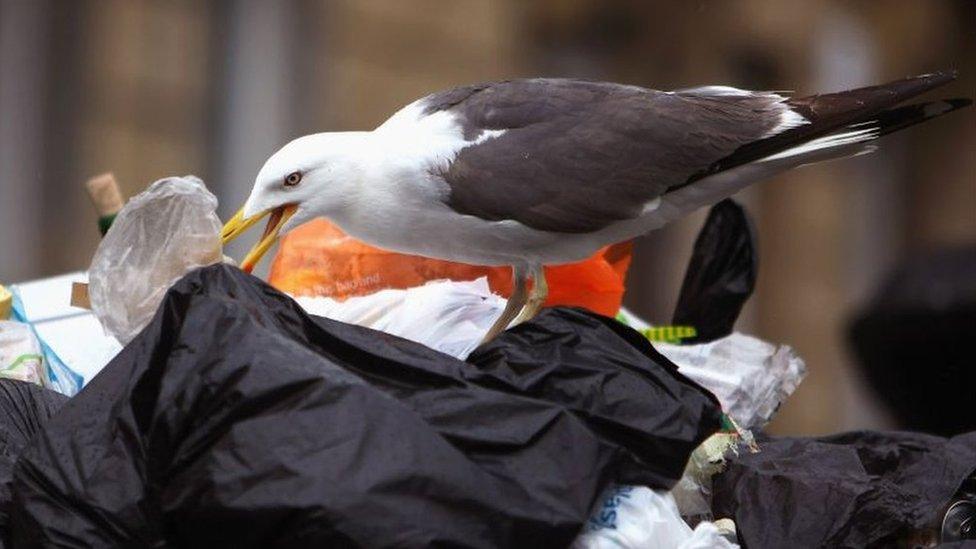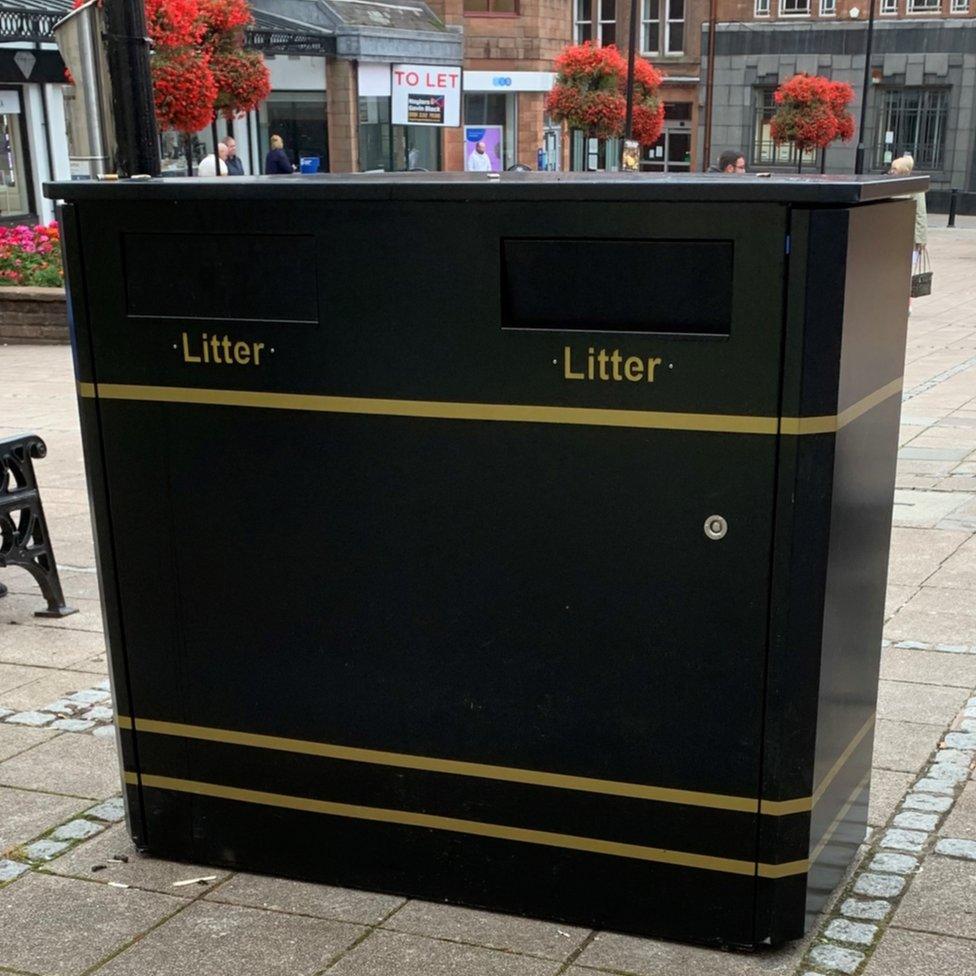New battle plan in fight to control urban gulls
- Published

Many towns across south west Scotland have suffered problems with gulls for several years
A new battle plan has been drawn up to tackle the long-standing problem of urban gulls in southern Scotland.
At a time of tight budgets, Dumfries and Galloway Council is being asked to increase expenditure on the issue.
It has tried a wide range of methods over the years - including flying a bird of prey and nest removal.
However, gull numbers have remained stubbornly high and issues have continued with mess, noise and swooping on the public.
Environmental Safety Officer Laura Howieson was appointed at the end of August last year to look at ways to protect people from the birds.
Prior to that she was an area co-ordinator for British Divers Marine Life Rescue (BDMLR) in the region.
Her work involved helping to save the likes of seals, whales, dolphins and porpoises when they got into trouble in coastal waters.
She said that "keen interest" in the wildlife of south west Scotland had led to her current role.

Laura Howieson is "optimistic" the council can help reduce the area's gull problems
"My job involves working with communities to come together and find a way of addressing the ongoing issues with gulls and the nuisances that they can cause," she said.
"My post will be to develop and deliver a plan to manage our local gull population and reduce the level of conflict with residents and visitors."
That involves working with the likes of Nature Scot to apply for licences for "last resort" control measures and providing advice on "gull-proofing" properties to deter future nesting.
She said there were clear hotspots where problems were at their worst.

"The areas that appear to be most affected by gulls and their antics are areas of Dumfries, Lockerbie, Annan, Sanquhar, Kirkcudbright and Stranraer," she said.
"The issues the gulls are causing are keeping residents up in the early hours of the morning, swooping whilst people are on the street as well as in their gardens.
"They have been making a mess of properties, vehicles, as well as people's washing - this becomes worse as the chicks are being raised."
Tackling it, however, does not come without cost.
The council has already agreed five measures within existing budgets which are:
Encouraging the use of recycling bins
Inspection and reporting overflowing bins
Working with food businesses
A littering education campaign
Enhanced litter enforcement
Now it is being asked to find more than £80,000 for a string of other options available including greater use of gull-proof bins and bags., external
Some people have asked if there is not a more simple - if drastic - solution to the situation but Ms Howieson said that might not be as straightforward as it seemed.

"Gulls can only be culled as an absolute last resort and under a licence from Nature Scot," she said.
"They are a protected species and are on the red list.
"This means that there are only certain actions that can be done to address the issue."
She said that any culling process could be a lengthy one with a licence required for every property along with full details of the measures already taken to deter the gulls.
It means other options have to be explored and Ms Howieson has spoken to all of Scotland's 31 other councils to share ideas.
Dumfries and Galloway Council also has a student arranging forums to discuss public perception of the issue.

Special "gull-proof" bins are part of the council's plans to tackle the issue
In the meantime, Ms Howieson said anyone having trouble with gulls should seek to appoint a contractor to remove any previous nests and consider fitting spikes or other deterrents.
"Preventing gulls from nesting in the first place is better than waiting until they do and then having to apply for a licence to take more drastic measures," she said.
Despite the long-running nature of the problem, she said she was "optimistic" the council's latest plans could make a difference.
If they do, they could then share that information with other local authorities facing similar issues.
- Published7 March 2019
